Support for vulnerable youth is lacking, advocates say but it could help end homelessness
Too often, young people are aging out of care without housing, says Threshold Housing Society director
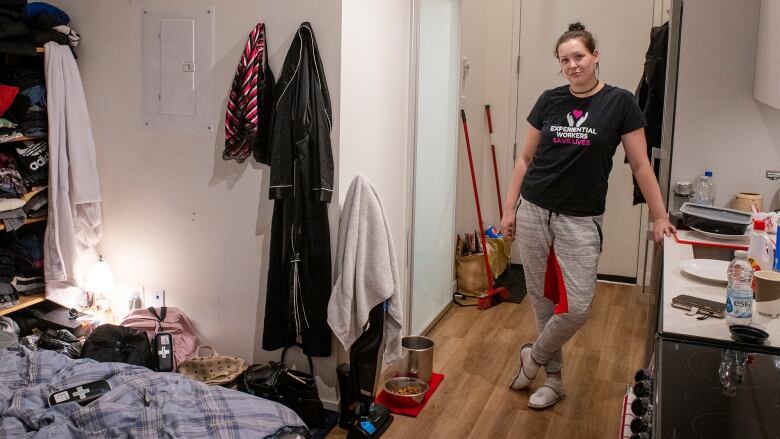
Amy Howell turned 28 last week and she celebrated the day in her tiny downtown Victoria apartment the first private rental she's ever had.
The bachelor apartment may be cramped but it'sa measure of how far Howell has come over the past decade, half of which was spent living on the streets of Vancouver, Victoria and beyond.
"The place I'm in right now is the nicest place I've ever lived in my entire life," she said.
Her journey from the streets to a privately rented apartment was a hard-fought battle. It took years of bouncing between shelters before she was finally given supportive housing and even then, she says, the threat of ending up back on the street was always looming.
Howell's experiences are not uncommon in Victoria, where hundreds of youth are either homeless or in unstable housing, advocates say.
They're now calling for a multi-million dollar government investment in support for vulnerable youth in order to break what they call a cycle of homelessness that continues into adulthood as children age out of care.
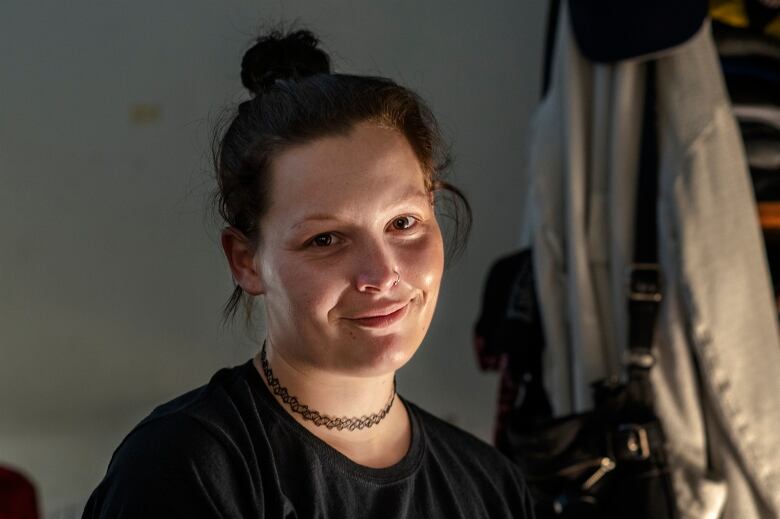
Street life
Howell says she was 18 when she escaped her controlling family in Surrey, B.C., after she was brainwashed and married off at 17.
"I literally had to run with my laptop and the clothes on my back," she said. "And that's when I fell into drugs."
Her years on the street were hard. She was robbed regularly, had to scrounge through the garbage for food and clothes, all while her addiction and thoughts of suicide were never far away.
"I would wander the streets, looking into people's houses and dreaming of what it would be like just to be warm or to sit down and watch TV and not have to push a cart or have to carry my home on my back," Howell said.
Today she is living the life she once dreamed of. She has a steady job and jokes about the weight she has gained coming home every night to a warm bed and Netflix.
Howell is now a peer support worker for the SOLID Outreach Society, and spends her days handing out safe drug paraphernalia at temporary housing sites like the former Paul's Motor Inn.
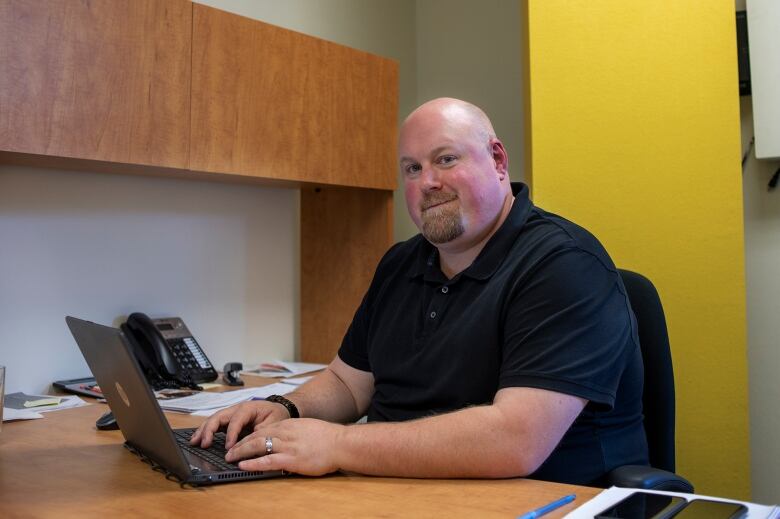
Cycle of homelessness
Howell's struggle to get off the street is all too common, says Colin Tessier, executive director of the Threshold Housing Society, which provides support for homeless youth in Victoria.
He says more than 150 youth are homeless in Victoria on any given night, and more than double that number are living in dangerous homes and will become homeless in the next year.
The child welfare system is largely to blame, he says.
"Young people age out of government care far too often without housing...They're dropped into an adult system that is incredibly dangerous and harmful and that's how you get long-term chronic homelessness."
Youth who are homeless become adults who are homeless and the cycle continues,Tessier explains.While he is encouraged by provincial action like purchasing hotels in Victoria and turning theminto temporary housing, he points out that government dollars are seldomtargeted onhelping homeless youth in particular.
"Investing in youth can be a challenging thing politically because the payoff sometimes isn't seen for decades," he said.
Tessiersays while there is a good range of youth-focused support in place, it needs to be bolstered by significant investment. An injection of $10 million, he said, would go a long way to housing hundreds of youth over the next two years and ultimately ending wider homelessness in the long term.
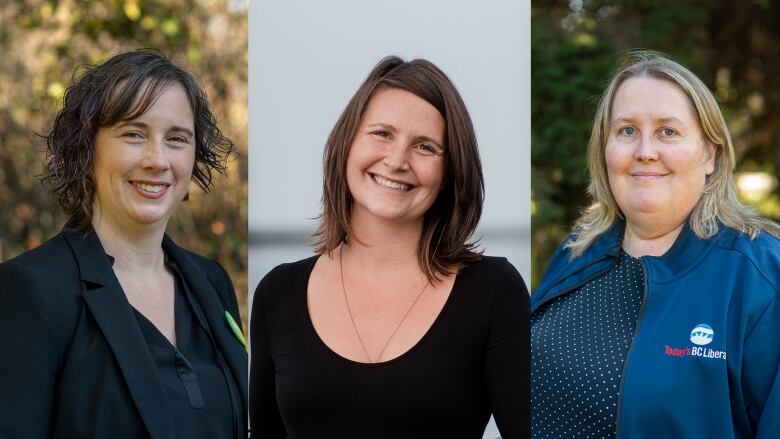
'A tiny drop in the bucket'
Candidates running in theVictoria-Beacon Hill riding in the Oct. 24 provincial election agree that such an investment is needed.
"That's a tiny drop in the bucket in terms of the province's budget," saidJenn Neilson, the B.C. Green Party candidate for the riding, which includes Pandora Avenue, Central Park and Beacon Hill Park, all centres of homelessness in the provincial capital.
"A housing-first approach has been shown in other jurisdictions to really pay off. There is an up-front cost to providing people with housing but that reduces other costs down the line."
Tessier's estimate of $10 million is a good place to start the conversation about supporting homeless youth, says NDP candidate Grace Lore.
"We can not risk going back, we need to do more of the investing. More recovery beds, decriminalization and safe supply as well as focusing on sheltering and affordable and supportive housing options." Lore said.
Homeless people camping in parks isn't working for anyone, she added.
ForB.C. Liberal candidate Karen Bill, getting people out of the parks should be the priority.
"Ending 24/7 camping is a first step," Bill said. "The parks are not the right place. We need to take action we need to provide treatment."
Howell, for her part, says she is skeptical of politicians' promises.
"They say that homelessness is one of their biggest topics before the election, but then after the election, nothing seems to happen," she said.
"But we need funding for there to be resources for people who aren't getting help. We need more funding 100 per cent."
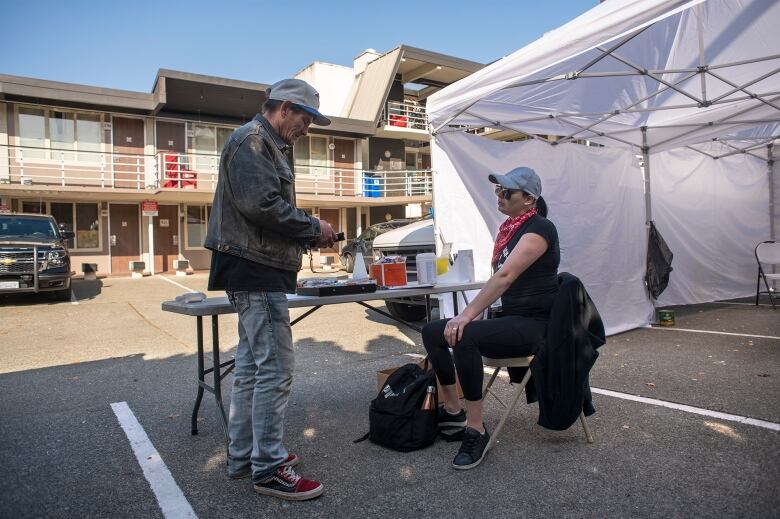












_(720p).jpg)


 OFFICIAL HD MUSIC VIDEO.jpg)
.jpg)



























































































